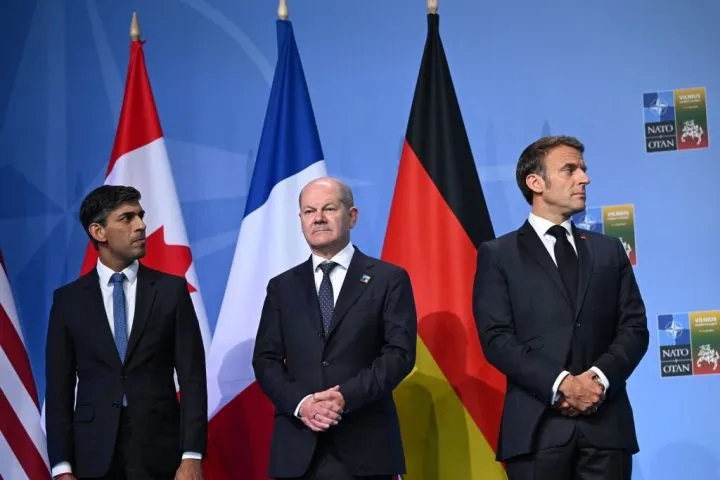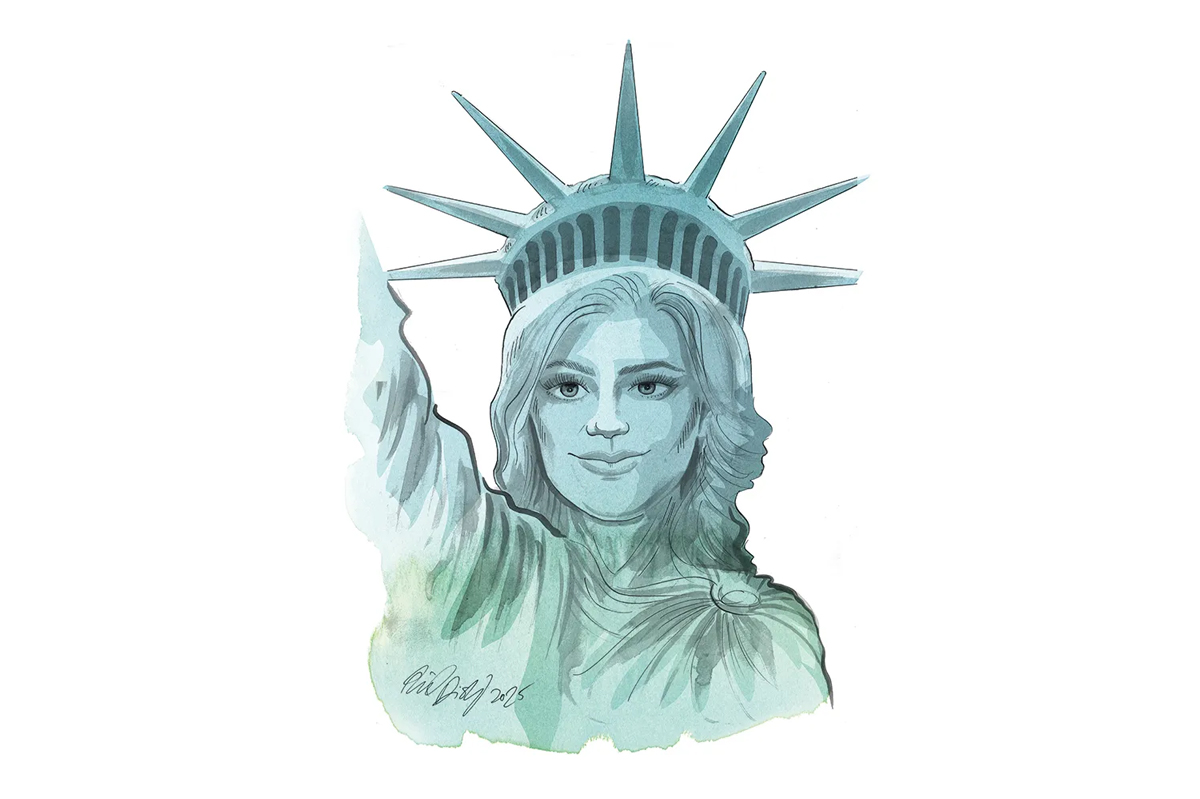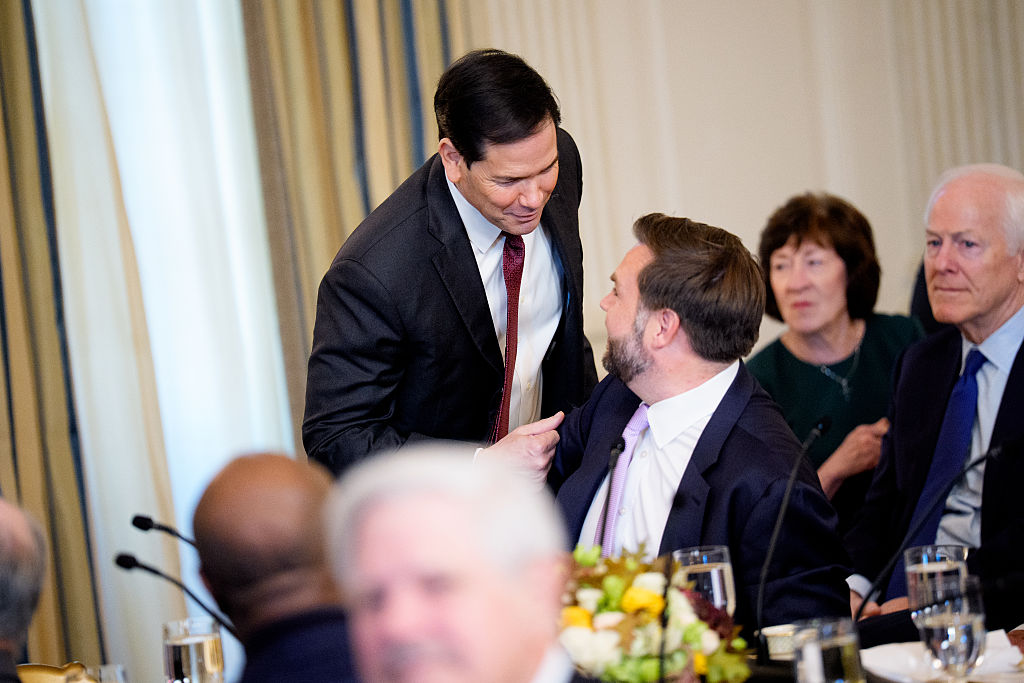Another year, another G7 leaders’ summit. The confab between the world’s wealthiest democracies has long since become one of those boring events etched into the global diplomatic landscape, a more intimate and picturesque version of the UN General Assembly meetings held every September. Speeches are given. Private dinners are arranged. Handshakes and hugs proliferate. And group photos are taken, where the well-dressed leaders smile as if they’re at a family reunion.
But this year’s session, which begins today, will entail a significant amount of weighty business. It comes at a particularly fraught moment for Europe’s centrist politicians, who were dealt an embarrassing blow by far-right political parties during the European Union elections this weekend. Sure, the center continues to hold most of the power in the European Parliament and European Commission president Ursula von der Leyen has a better than even chance at getting another five-year term. But the results undoubtedly caused tremors on both sides of the Atlantic. The center of the political earthquake was in France, where French president Emmanuel Macron’s Renew Europe Party was trounced so badly by Marine Le Pen’s National Rally that he dissolved the French sssembly and scheduled new elections for later this month.
US and European officials have butted heads about what to do with seized Russian reserves
The G7 also occurs as the $61 billion US military assistance package for Ukraine is starting to stream in — not a moment too soon in the eyes of Ukrainian officials. Last month, the Russians opened a new front in northeastern Kharkiv to stretch the Ukrainian army’s defensive lines and force Kyiv to shift resources from the Donbas. In essence, Putin is betting that Russian mass will be able to exhaust Ukrainian resistance.
While Ukraine has managed to stop Russia’s territorial advances in the northeast, the city of Kharkiv is getting hit on a daily basis with all kinds of Russian ordinance. Ukrainian president Volodymyr Zelensky, who was recently in Berlin pleading with the Bundestag for more air defense systems and funding for reconstruction, will make a stop at the G7 to press his case still further. We can expect Zelensky to do what he has done pretty much every day for the last twenty-eight months: blast Russian president Vladimir Putin as an enemy of civilization; warn Western leaders that Putin could pull a Hitler circa 1939 in the event he wins in Ukraine; and implore his supporters to keep the aid tap flowing for as long as possible.
A top priority on the G7 docket is what to do about Russia’s foreign reserves, a $300 billion chunk of cash sitting untouched in European banks. The EU blocked Putin from accessing those funds a few days after the war in Ukraine started. Since then, US and European officials have butted heads about what to do with the reserves. The Biden administration has taken an aggressive posture on this question, pushing for the EU to officially seize the money and allocate it to Ukraine.
Although sympathetic to the intent behind the idea, European policymakers are far more cautious, arguing that simply taking Russia’s money and sending it to another state would open a whole can of legal worms and instigate Russia to retaliate in some way, shape or form. In addition, Europe is also concerned about how such a move would impact the strength of the Euro as an international currency. A precedent would be set: knowing what happened to the Russians, why would any country choose to deposit into European banks again?
China, too, will be a big subject. Washington and Brussels have chipped away at their somewhat divergent approaches to Beijing over the last several years — this has as much to do with Chinese overproduction as it does any proactive maneuvering on the part of US officials. But other differences won’t be eliminated after the summit in Italy. The Biden administration talks a big game about adopting a strategically smarter strategy than its predecessors, but Biden’s strategy often looks like an extension of the Trump administration’s own. Tariffs, export restrictions and reductions in technology transfers to China have expanded under Biden’s watch. In the same vein, the US has urged its European colleagues to mimic its policy and stop exporting chips and chip-making machinery to the Chinese market lest it contribute to the military capacity of the People’s Liberation Army.
The Europeans have come around to Washington’s position, albeit slowly. This week, the EU concluded its nine-month investigation into alleged unfair Chinese trade practices in the electric vehicle (EV) sector and adopted a 38 percent tariff on imports of Chinese EVs. Even so, anything that smacks of economic protectionism is viewed warily in the bloc; the EU’s overall trade relationship with China, valued last year at $800 billion, is larger than America’s own.
For Germany, Europe’s economic powerhouse, tit-for-tat tariffs with Beijing are a fool’s errand, particularly when the German economy is going through headwinds. Given that China has been Germany’s largest trading partner since 2015 — German exports to China increased by 136 percent in the 2009-2021 timeframe — it’s no coincidence that the country’s trade minister wasn’t thrilled with the latest EU tariffs. The Germans are economic opportunists and want to preserve — and if possible, expand — their market share.
Don’t get me wrong. The G7 will unroll a few agreements this weekend. The communique will be long. As far as specific deliverables, the group is reportedly prepared to leverage Russia’s frozen reserves to underwrite a $50 billion loan to Ukraine. China will be criticized for saturating the market with Chinese-manufactured cars, carrying on with expansionist territorial claims in East Asia’s disputed waters and exporting equipment with military applications to Russia. But just because countries happen to be allies doesn’t mean they see all of the world’s intricately complicated problems identically or agree on how to solve them.
This article was originally published on The Spectator’s UK website.


























Leave a Reply